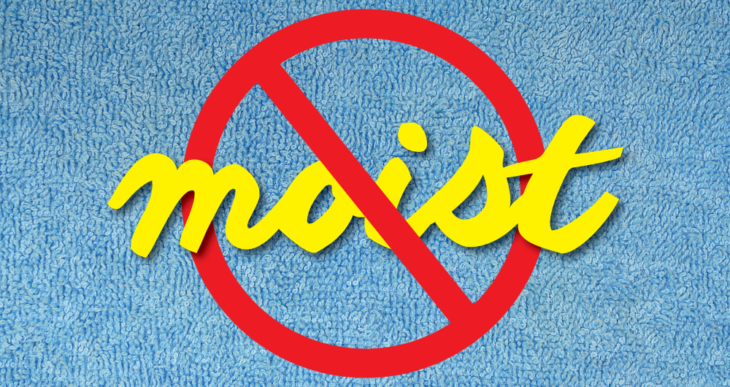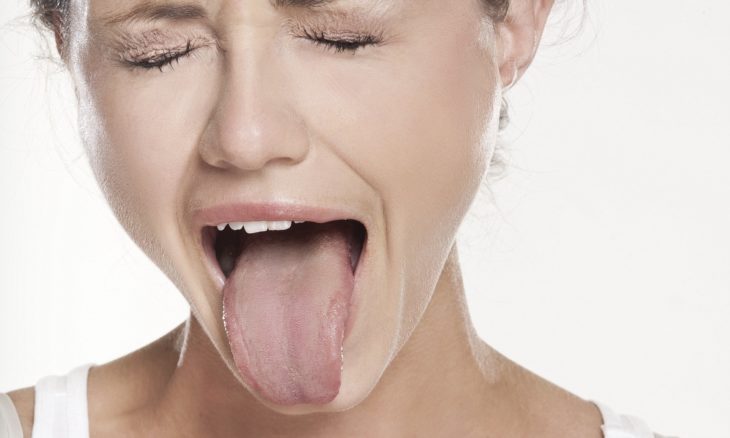Words are powerful. Yes, there’s the whole “sticks and stones” theory that words can’t hurt you, they can for sure make you feel uncomfortable. Broadly recently interviewed a speech specialist to see why we hate words like “moist” according to science. Finally! an answer for the world’s most pressing question and some proof that words do mean something. A single word can spark outrage and controversy. Any victim of cyber-bullying will will confirm that words do indeed hurt. Sometimes words are even off-putting just from how they sound and elicit an emotional response without any context at all. But “moist” is its own special case, spawning countless impassioned screeds about why it really is the worst word ever.
I personally think “moist” is fun to say, but I know I’m in the minority with this. I’m also a big fan of saying “pussy” much to my roommate’s dismay. She cringes every time I say it. She can barely bring herself to say it at all. She’s confident with her sexuality, so it’s not a matter of insecurity, she simply doesn’t like how it sounds.
What’s the alternative then? “Vagina”? Not much better. In fact, a middle school teacher just got fired for using such an “inappropriate” word. In this case, the context had a lot to do with the word’s impact on her students and the principal that fired her, but would “vagina” still elicit a response, based solely on how it sounds?

Source: bdcwire
“Vagina” wasn’t covered in the interview, but “flaccid” was. Paul Thibodeau, an assistant professor of cognitive psychology at Oberlin College, had this to say:
“I’d say it’s the sexual connotation and the suggestion of impotence that causes the aversion there. Also, that particular set of vowels, and the ending in the hard consonant could be a contributing factor, absolutely.”
Yeah, it’s pretty hard separate a word from its sexual context. But what about “moist?” There is some sexual connotation there, but it’s also used to describe both objects and food. Why are we irked when we hear “moist” even though you’re just describing a slice of cake?
“At the heart of why people dislike the word “moist” is a psychological tendency to be repelled by words that connote bodily functions. Interestingly, it’s linked to a distaste towards bodily function, rather than the sexual connotations of the word.” Other words that commonly resulted in aversive responses include “puke”, “phlegm,” and “vomit,” suggesting that people have a problem with the dribbly, mucus-filled substance of life itself, rather than actual sexual acts.”

Source: dailymail
Makes sense. Same goes for “cum.”
” It’s all about the “strong sexual connotation, specifically of a bodily fluid,” in this case. Because, if you hadn’t already figured it out—people don’t tend to like certain bodily fluids (you don’t need a PhD to figure that one out).”
It’s an interesting piece, although I really wish they had tackled “vagina.” It’s such a harsh word that isn’t nearly as fun to say as “penis.”
Original by: Liz Magee
